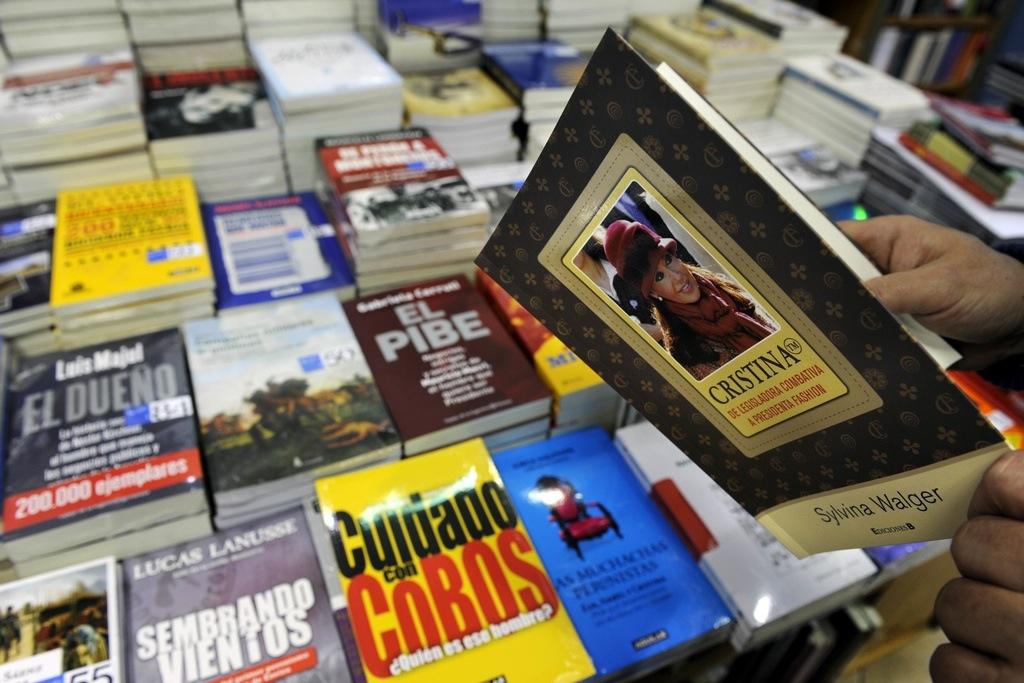Inflation: Argentina’s dirty word
A man reads a biography of Argentine President Cristina Fernandez de Kirchner next to a table with politicians’ biographies on Sept. 1, 2010.
Buenos Aires has never exactly been friendly territory for Argentine President Cristina Fernandez de Kirchner.
And that looks unlikely to change when porteños, as Buenos Aires residents are called, go to the polls on Sunday to vote in the mayoral runoff election.
Current Mayor Mauricio Macri holds a more than 20-point lead over challenger Daniel Filmus, the president's hand-picked candidate, according to a poll commissioned by La Nacion.
The city's economy has prospered since Marci was elected in 2007, and the conservative 52-year-old mayor is credited with establishing a new municipal police force, ending Buenos Aires' dependence on federal officers, reports the Economist.
His re-election would mean that the president's ruling Peronist party has once again failed to make inroads into the capital, which has consistently voted for opposition parties.
It could also mean greater transparency on Argentina's soaring inflation.
Macri has said that if he wins, he will launch the capital's own consumer price index.
The "Buenos Aires CPI" would measure the cost of 300 goods in the capital city and would offer an alternative measure of inflation than the official government numbers.
According to the government, inflation in Argentina is running at 9.7 percent, which is already high. But independent economists say the actual rate exceeds 20 percent, which would mean Argentina has one of the highest inflation rates in the world.
Earlier this month, the government filed criminal charges against an economic consulting firm charging it with "publishing false information about inflation data." The government has fined at least nine economic research firms $122,000 each so far this year, according to the Wall Street Journal.
"They fine us for saying how much prices have risen," said Orlando J Ferreres, whose firm received a fine. He told the WSJ that the charges are part of a strategy to prevent independent economists from publishing potentially negative information during an election year.
The credibility of the national statistics agency has been in question since 2007. Underreporting price increases allows the Argentine government to save millions of pesos on its debt payments, and distorts statistics like the poverty rate, says BusinessWeek.
Creating a separate consumer price index for Buenos Aires, city officials say, would provide more precise information on the cost of food, household services, clothing and other goods.
Every day, reporters and producers at The World are hard at work bringing you human-centered news from across the globe. But we can’t do it without you. We need your support to ensure we can continue this work for another year.
Make a gift today, and you’ll help us unlock a matching gift of $67,000!
